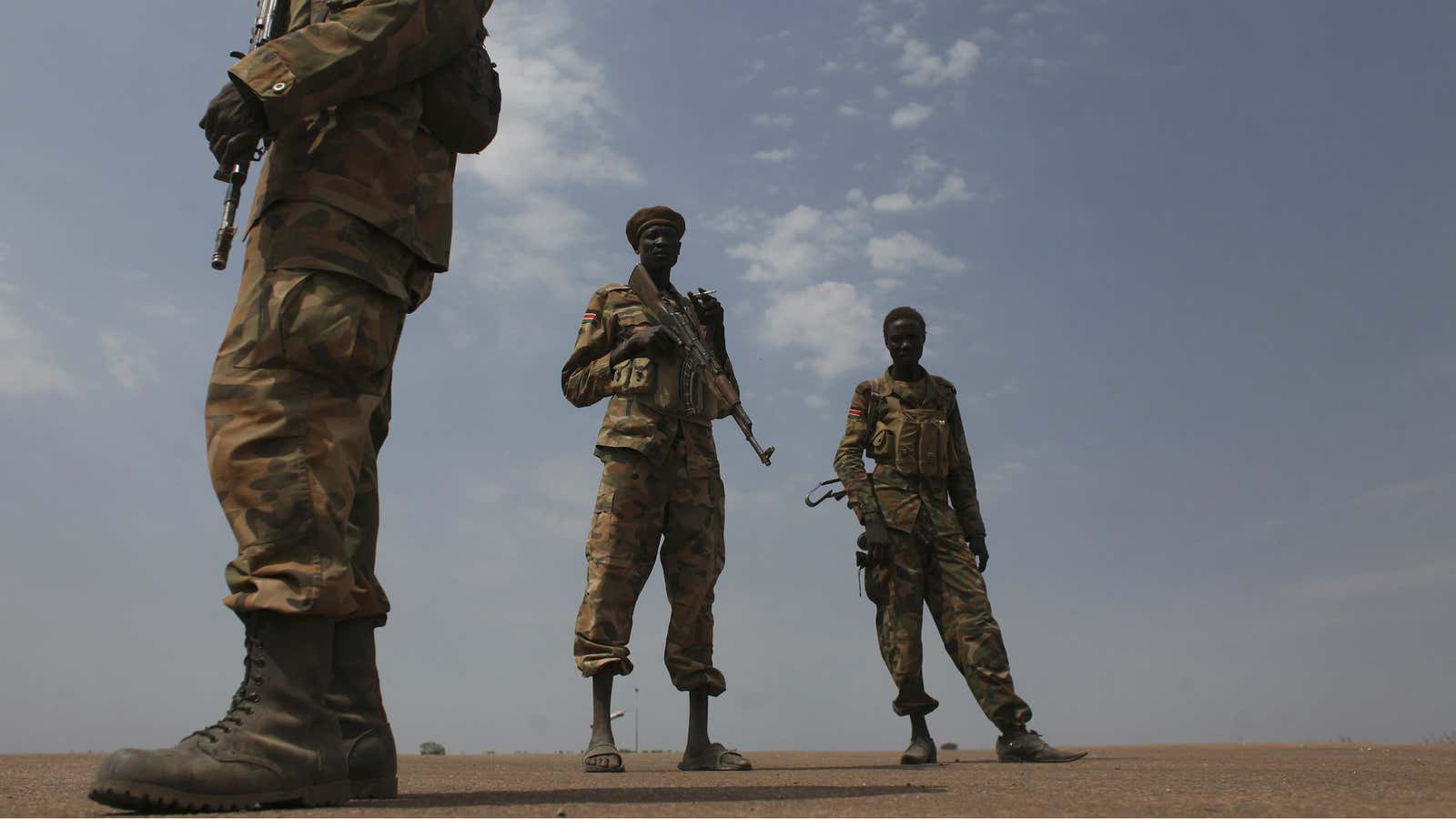A lawsuit seeks to freeze transfers of spy equipment from Israel to South Sudan amid allegations the Juba government uses Israeli surveillance technology to track down, lock up, and torture political dissidents and journalists.
The petition was filed Tuesday by Tamar Zandberg, a member of Israel’s parliament from the Meretz party who has also spoken out about Israeli arms transfers to South Sudan’s government, which has fought a devastating civil war against rebel groups for the last two and a half years.
“Surveillance is one of the mechanisms being used in that civil war,” Zandberg said. “This is part of the war crimes and part of the crimes against humanity being used.”
Israel has allegedly provided assistance to South Sudan for years, but support for Juba’s surveillance activities appears to have increased after the civil war began.
A United Nations panel of experts said in a January report that South Sudan’s government’s National Security Service’s “ability to identify and illegally apprehend individuals has been significantly enhanced since the beginning of the conflict because it has acquired additional communications interception equipment from Israel.”
The UN and human rights groups have repeatedly accused South Sudan’s NSS of arbitrarily arresting perceived dissidents and journalists. NSS currently holds at least 33 political prisoners without charge, with accusations of detainees being tortured and denied food and medical care.
There are few details on Israel’s exact surveillance assistance to NSS, but Zandberg’s lawyer Eitay Mack told Quartz Israel’s support to NSS is not limited to hardware and software.
“The South Sudanese don’t have the technicality and the professional personnel to operate the [surveillance] systems, so as far as I know there are Israelis actually on the ground in Juba and are operating the system by themselves,” he said.
South Sudanese presidential spokesman Ateny Wek Ateny and NSS media official Ramadan Chadar would not answer questions about government surveillance systems. Israeli authorities did not respond to messages with questions about the country’s role.
Amnesty International’s South Sudan researcher Elizabeth Deng told Quartz that NSS’ improved surveillance capabilities have led to a climate of fear in South Sudan.
“There’s a very visceral fear among people in Juba that their telephones are being monitored, so it has a broad impact on right to freedom of expression when people are constantly scared of security services listening in on their phone conservations,” she said.
Israeli weapons have also been crucial in the South Sudanese government’s war effort, sparking protests in Israel.
Israeli officials have claimed they stopped sending lethal weapons to South Sudan, but Mack says that doesn’t go far enough.
“The difference between lethal weapons and non-lethal weapons is somewhat artificial,” Mack said. “Electronic systems can also be dangerous if the authorities are abusing them in a widespread and systematic manner.”
The war began late 2013 when a pro-government militia armed by NSS officials with Israeli ACE rifles massacred Nuer citizens in Juba. Government troops later used Israeli Micro-Galil rifles during fighting in the oil fighting in the oil-rich Upper Nile state, the UN panel said.
